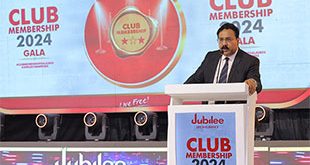
UNEB Reports Drop in Distinctions, First-Grades, While Science Tops for Third Consecutive Year
Kampala, Uganda | THE INDEPENDENT | The Uganda National Examinations Board (UNEB) has reported a decline in the first-grade passes in the 2024 Primary Leaving Examination (PLE), despite an overall improvement in the pass rate.
During the presentation of the results at State House Nakasero on Thursday, UNEB Executive Director, Dan Odongo announced that 84,301 candidates (10.7% of the total candidates) earned Division One in 2024, a slight decrease from 86,582 candidates (11.7%) in 2023, out of 736,931 candidates who sat the exam that year.
The report further highlighted that 397,589 candidates passed in Division Two, accounting for just over half of the total candidates who sat the examination. Additionally, 165,284 candidates achieved Division Three, while 75,556 were placed in Division Four.
However, a concerning 64,251 candidates failed the examination and were not graded, meaning they were not eligible to proceed to the next level of education. This marks a significant number of students who will face challenges in advancing their academic careers.
“Overall, at pass eight level and above, candidates performed better in Social Studies & Religious Studies, Integrated Science, and Mathematics. There was an overall drop in performance in English compared to 2023,” Odongo said. The 2023 PLE results indicate that students performed best in Integrated Science, with over 93.9 percent of the 787,041 candidates who sat the subject examination passing with at least a grade 8.
 Percentage of 2024 Candidates by Proficiency Level and Subject
Percentage of 2024 Candidates by Proficiency Level and Subject| Proficiency
Level |
Mathematics | English | Integrated
Science |
Social Studies with Religious
Studies |
| Higher Ability | 17.4 | 17.0 | 14.3 | 14.7 |
| Medium Ability | 67.9 | 65.8 | 61.8 | 69.5 |
| Lower Ability | 14.7 | 17.2 | 24.0 | 15.8 |
| Total | 100 | 100 | 100 | 100 |

| DIV | 2024 | 2023 | ||||||
| NO. | CUM. | % | CUM% | NO. | CUM. | % | CUM% | |
| 1 | 84,301 | 84,301 | 10.7 | 10.7 | 86,582 | 86,582 | 11.7 | 11.7 |
| 2 | 397,589 | 481,890 | 50.5 | 61.2 | 336,507 | 423,089 | 45.7 | 57.4 |
| 3 | 165,284 | 647,174 | 21.0 | 82.2 | 156,290 | 579,379 | 21.2 | 78.6 |
| 4 | 75,556 | 722,730 | 9.6 | 91.8 | 69,283 | 648,662 | 9.4 | 88.0 |
| U | 64,251 | 786,981 | 8.2 | 100.00 | 88,269 | 736,931 | 12.0 | 100 |
| ABSENT | 10,463 | 1.3 | 1.3 | 12,323 | 1.6 | 1.6 |
Social Studies ranked second, with 91.9% of the 787,063 candidates who sat for the subject achieving at least a grade 8, followed by Mathematics with 89.4 percent of the 787066 candidates who sat for it passing. English recorded the lowest performance, with 88.3 percent of the 787,049 candidates who sat the paper passing.
Odongo further explained that Distinction-level scores had decreased across all subjects, indicating that many candidates struggled with questions requiring higher-order thinking and problem-solving skills. For example, while 9.8% of candidates who sat for the Science exam in 2023 achieved at least a Distinction 2, this figure dropped to just 6.4% in 2024, despite an increase in the total number of candidates. This decline highlights the increasing difficulty students face in mastering advanced concepts.
In addition, UNEB for the first time reported on the proficiency of candidates in three ability categories: High Ability, Medium Ability, and Low Ability. According to Odongo, High Ability candidates not only recall facts but also understand them and apply them effectively to solve problems or in new contexts.
Medium-ability candidates can recall and understand facts and apply them in problem-solving situations, though they struggle to adapt these facts to unfamiliar scenarios. Low Ability candidates are primarily able to recall basic facts without further application or understanding.
 Overall performance by gender
Overall performance by gender| GENDER | DIV.1 | DIV.2 | DIV.3 | DIV. 4 | DIV. U |
| MALE | 45,203 | 192,546 | 71,951 | 36,049 | 28,110 |
| 12.09% | 51.50% | 19.25% | 9.64% | 7.52% | |
| FEMALE | 39,098 | 205,043 | 93,333 | 39,507 | 36,141 |
| 9.46% | 49.63% | 22.59% | 9.56% | 8.75% |
#PLE2024| 𝐀𝐂𝐂𝐄𝐒𝐒 𝐑𝐄𝐒𝐔𝐋𝐓𝐒
Access PLE results via SMS on all telecommunication networks. pic.twitter.com/R3fzBWbb0a— Ministry of Education and Sports – Uganda (@Educ_SportsUg) January 23, 2025
The Selection exercise for the Senior One cohort will be conducted on January 30th and 31st, 2025, with the first term commencing on Monday, February 17th, 2025.#PLE2025 @radiobuddu98 @Jadwong @MegafmGulu @vomuhabura @VOTEFMRadio @Vok895 @RadioPacisnews @Educ_SportsUg
— Kyobe Sarah. N (@kyobesarah) January 23, 2025
The analysis revealed that less than 20% of candidates demonstrated High Ability in any subject. The percentage of candidates with higher ability was notably higher in Mathematics and English (around 17% each) compared to Integrated Science and Social Studies & Religious Studies, which saw about 14% at the higher ability level.
Furthermore, approximately two-thirds of candidates exhibited Medium Ability in Mathematics, English, and Social Studies. In Integrated Science, about 3 in 5 candidates were classified as having medium ability. The Low Ability category was most prevalent in Integrated Science (24%), followed by English at 17.2%, indicating challenges in these subjects at the foundational level.
Speaking at the release of the examination results, Education Minister Janet Museveni thanked UNEB for their efforts in assessing whether learners had truly mastered the knowledge and skills in the subjects they studied. She emphasized the importance of evaluating not just academic performance, but also the depth of understanding and practical application of the concepts learned. “Assessing for the mastery of knowledge and skills is a very commendable direction that UNEB has introduced, to help us make more meaning out of the aggregates and grades, that we have been seeing our learners attain,” she said.
The Minister further added that measuring the mastery of knowledge and skills provides a clearer understanding of the extent to which a learner has gained in-depth knowledge in a given subject. She emphasized that this approach not only reflects how well students can apply their knowledge and analyze information but also their ability to solve problems both in familiar contexts and new situations.
“Therefore, I encourage UNEB to provide teachers with additional guidance and training, so that they gain a better understanding and appreciation of the assessment of mastery of knowledge and skills, and how they can use this approach to tailor individual attention to learners, who may be struggling in one or more areas,” she added.
 The Independent Uganda: You get the Truth we Pay the Price
The Independent Uganda: You get the Truth we Pay the Price



